I was just slipping into my night-time ritual of reading in bed before lights out when I heard a commotion out on the street and the cry, “I can’t breathe!” We live on one of the main streets in a small mountain town in the Smokies. Pulling my robe on, I went to the front door in time to see the flashing lights of one of our police cars leading a line of young people and their placards through the street in the direction of the town center. Flashing lights brought up the rear ahead of a line of patient, but probably irritated drivers. The impromptu demonstration did indeed end at the old Courthouse for some speeches and laments before quietly dispersing. What was a tear-gassed assembly a few hundred miles north was a spontaneous walk shepherded by our police cruisers.
Our community is underlain by a mushroom mycelium of old lineages stretching back to the Scotch-Irish and German settlers of these lands. In the words of a now-deceased friend “We don’t say anything unkind about anyone, because we’re all related.” But we also have descendants of enslaved Africans as well as people who came here to work in the tourist and hotel industry. Hispanic newcomers have also settled in. Everyone knows someone or is someone who can trace some lineage back to the Cherokee whose descendants still live in these mountains. A wide array of clergy, academics and professional folks have retired here as well. They, too, begin to take root with the other mushrooms in this woods.
What appears at first to be a racial monotony is peppered with diversity. The supposed last shot of the Civil War took place a few blocks from our home. The World Methodist Council is headquartered a few miles away. Someone has a rooster nearby, but we can walk to church, the post office, the bookstore, and the library, not to mention the coffee roaster. Like everyone else, we are trying to recapture some of our precious community life without exposing ourselves to the onslaught of the Covid virus. We haven’t had any deaths yet, but we now have had over 50 cases in a county of 60,000. Our health department has done a great job of public education.
But in the midst of a pandemic in which people end their life by not breathing, one breathless death has ignited our nation. Yesterday our local chapter of the NAACP hosted a gathering at a pavilion to honor the memory of George Floyd, whose inexplicable and savage death has unlocked the frustrated rage of centuries. It is an energy that can rip us apart or one that can lead us to a time of greater justice and reconciliation.
About fifty of us showed up and gathered around the pavilion: the leadership and some of us regulars from the NAACP, friends of friends of friends, our brand new police chief, and members of the police and sheriff’s departments, some pastors, old folks and young. Everyone wore a mask with the exception of our police officers. I surmise that they don’t want to be hidden behind some anonymous shield, but I’m not sure about that. Transparency is important, even in this pandemic. Before an impromptu altar of flowers and candles, our president, Pastor Walter Bryson, invited people to share their concerns. Dorothea, with traces of her German birth in her speech, spoke of the importance of teaching ALL of American history to her middle school students. Carolyn, at 81, our senior and still very dynamic core leader in the African-American community, spoke in profound gestures of living her entire life trying to breathe, asking for just one year without the sense of someone’s knee on her neck. Chief Adams asked people to call him any time, offering his cell-phone number, so they could share their concerns directly with him. Walter and several others expressed gratitude for our law enforcement men and women, who are deeply involved in all aspects of the community to enable us to continue sharing a rich community life together. A woman I don’t know read a prayer from Father Richard Rohr. Philip Gibbs, our vice-president, implored us to involve more and more young people in picking up the baton.
Many of us there had been seared in the sixties and felt like nothing had changed, even with Barack Obama’s election. But something has changed. It has been the slow accretion and solidification of a cultural and civic commitment to equal justice for ALL. It is a renewed sense, partly driven by the pandemic, that we are all bound together in the single garment of our destiny, to restate King’s memorable line. The legitimacy of our white nationalist president is dissolving in the tear gas, the blasphemous attempts to manipulate our religious devotion, and the sheer incompetence of its response to our global pandemic. We are living in that kind of end-time when new possibilities emerge in the flames of destruction.
And then we stood in silence for eight minutes and forty-six seconds, breathing as George Floyd had tried to breathe, his words to us and to his mother resounding in our ears. We breathed in a quiet resolution that he should not have died in vain. With a brief prayer from Philip, we slowly departed in a light rain, breathing the moist air, seeing through the clouds the mountains greening up around us.

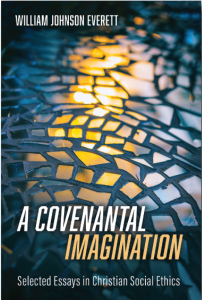
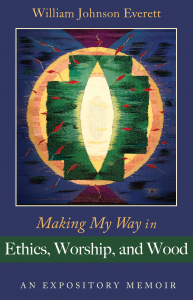
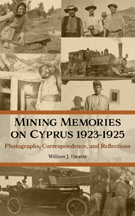
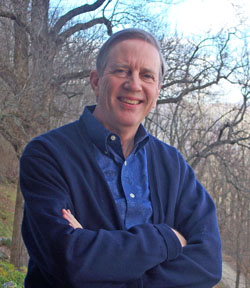
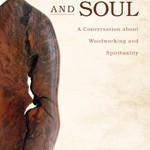
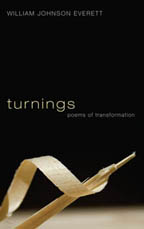
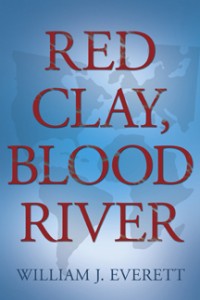 Red Clay, Blood River
Red Clay, Blood River
Your story is truly a poem. It is a beautiful statement of who we are as a people. We are HERE with all our failings and hopes. Bound together as one.